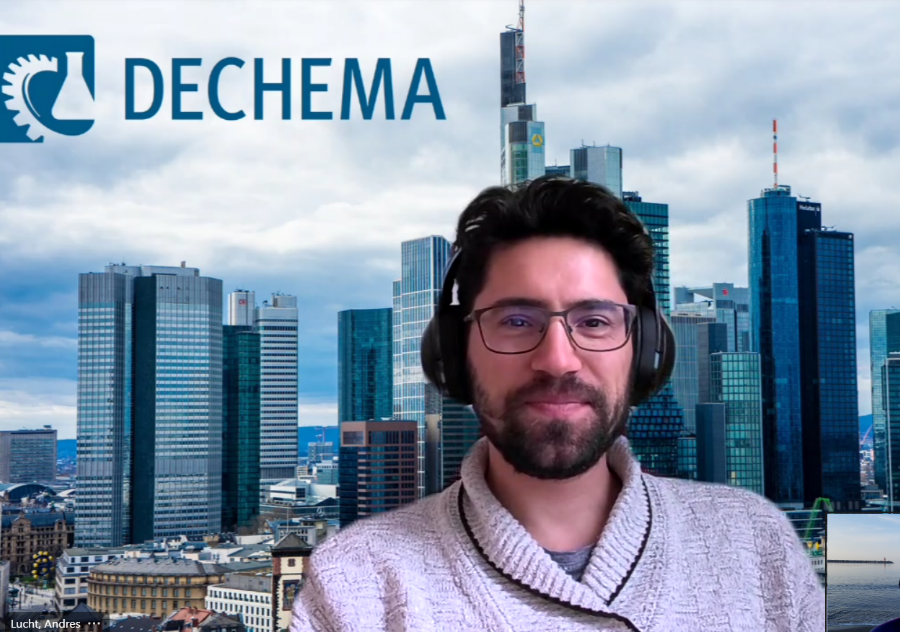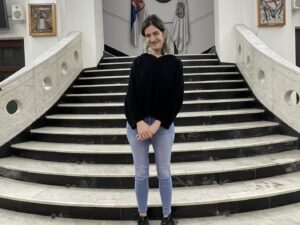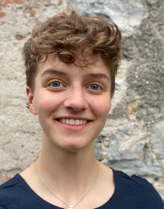I joined EJWP 2019 by contacting Director Naomi Timmer, after checking for water-related training and education programs at the European and global levels. I am interested in continuous education and learning through new networks, and even though I was connected in my field in Germany, I knew that I was lacking knowledge about the European water governance scene.
In the meantime, I’ve connected my EJWP activities within my organisation in Frankfurt, DECHEMA e.V. (Society for Chemical Engineering and Biotechnology). Now I am initiating the final EJWP2 project to work on as a group and with my organization, so that DECHEMA is actively involved in EJWP. It’s good to be active in certain networks for information gathering and sharing on these types of multistakeholder projects. Our potential focus is to connect with technically-associated specialist groups, as we are integrating a project on industrial water and the opportunities with digital technologies.
In EJWP, I’ve learned various aspects of project management, team leadership and conflict management; it’s vital to communicate content in a focused way in all senses that is also respectful. A session with EJWP trainer Jennifer Cronick was helpful in stepping out of our own self perspectives to view ourselves as others see us. I now manage situations easier and am less stressed about achieving an expected outcome, but involving the team’s expertise. I also know that even though leading projects, you have to find a balance between control and acceptance.
In EJWP, we interact with a range of stakeholders throughout various projects, and I’ve also seen huge developments on this in our group. An outstanding project was in unveiling the value of water and to communicate this to others: what channels to use, what psychological triggers exist and how to communicate your thoughts properly. In this project, our team had a great interaction with Gonzalo Delacámara of IMDEA Agua as project owner. I’m impressed with his work, as well as EJWP Ambassador Chrysi Laspidou, who comes across as very honest and personal in her presentations. I’ve taken away some solid impressions on professionalism in the sector through these interactions.
Water Europe is an important connection for DECHEMA. Many Working Groups are thematic overlaps with our mostly industry-related companies. I have noticed that the sizes of professional water networks are becoming more evident. If you see that your contacts know each other, then you see more clearly how the sector circles interact. Additionally, there are regional, national and European or international networks. In Germany, we have different associations like for wastewater (DWA), drinking water (DVGW) and industrial water (DECHEMA), also acting internationally.
One of my key topics is digitalization of the water sector. I see great opportunities by the movements on Open Source and Open Data. They are key elements toward development and innovation. Involving stakeholders in new developments builds knowledge and trust by ensuring democracy and transparency. Releasing of relevant data could leverage and connect existing processes by using external capacities (swarm intelligence). On the other, side we must consider and acknowledge the barriers for digitalization. For example, security threats, capacity development and training, and missing return on investment must be clearly analyzed and handled.
More to this, we all should be aware about water and why we should value it. Climate extremes and new market players – hydrogen economy – will amplify a more uneven distribution of drinking water worldwide. Social impacts due to water related stress will become worse. International politics and consortia must consider all this. We must implement water cycles on a small scale to achieve local resilience, going from centralized to hybrid water systems. Compliance requirements will grow and thus will complexity, so we must prepare for more uncertainty. I think that in best cases now and for the future, cities are green and breathe, there is good wastewater treatment, and water is valued and even “holy.”






